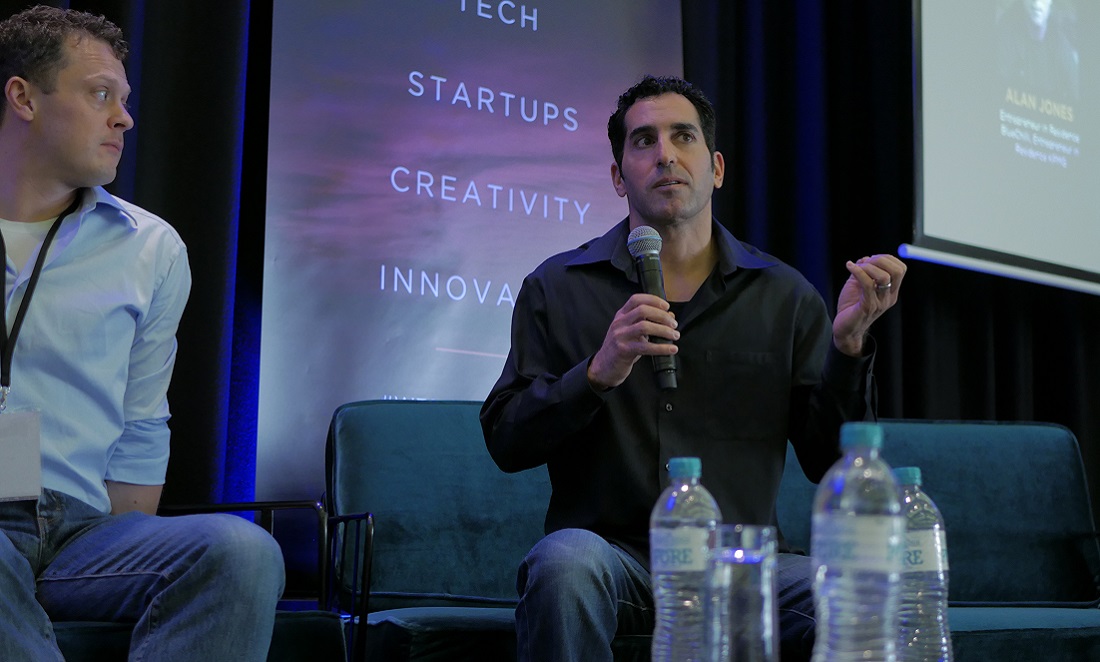Running in Perth since 2011, West Tech Fest (WTF) was co-founded by kitesurfing American venture capitalists. This year’s line-up included notable local speakers, including Dr Jemma Green, co-founder of PowerLedger and Deputy Lord Mayor of Perth (obviously), and Dr Marcus Tan, CEO of the online medical booking system HealthEngine.
WTF also attracted a number of international speakers, including Paul Herz, who is leading Facebook’s new top secret hardware division—so top secret he wasn’t allowed to share anything the new division is working on, other than saying that “the goal is to make an impact on the world and to use technology for that purpose”.
While the topics covered were wide ranging, almost everyone was talking about the future.
Here’s some highlights of the most fascinating (and perhaps most terrifying) visions of the future that were shared at WTF.
Vegan cyborgs
On the panel about the relationship between humans and technology, Erick Miller, founder of Hyperspeed Ventures, shared his excitement of a transhumanist future where humans ‘converge’ with machines.
In Erick’s vision of the future, humans will have augmented intelligence through implantable devices, genetic engineering and robotics. In this way, we’ll become a new kind of super human that is smarter, stronger and can live longer (or forever!). There will still be the older kind of human scared of the new technology, but they will be left behind.
In the more near term, Erick imagines a future where we address climate change and a quickly growing population by shifting to veganism, thanks to new advances in plant and algae-based seafood.

VR is dead, long live AR
While most of us are still getting our heads around virtual reality (VR), the technology was already old news at WTF. What was more exciting was augmented reality (AR).
Even though Facebook purchased the VR company Oculus back in 2014, their hardware guy Paul Herz didn’t mention it much in his talk, other than to make the distinction between it and AR. As he described, “VR is immersive like a book, but with AR, you’re in the world and all the information is coming at you that enhances your knowledge or insight.” Put another way, VR takes you to another reality but AR adds to your current reality.
Paul was particularly excited about AR’s use in medicine, education and the development of new products.

AI is the new UI
As I’ve written about previously, chatbots are quickly becoming a thing.
Also known as virtual assistants, you’ve probably come across one when you’ve tried to book a flight or do your taxes. Chatbots are an early example of how artificial intelligence (AI) might become integrated into everyday life. Facebook’s Paul Herz believes that AI will become the new way we interact with machines—or in technologist speak, the new user interface (UI).
Combine AI with other technologies such as VR or AR glasses? Then you can imagine a future where it is totally ho-hum to have a little assistant guiding you through a new game or helping you compose a new email by dictation rather than keyboard.
And then of course there’s bitcoin and the technology that enables it, blockchain. But that’s another article entirely.
And there you have it. Three visions of the future from some of the folks working to create that future. Will it happen? The future doesn’t exist yet, so remember, what happens is up to everyone.









